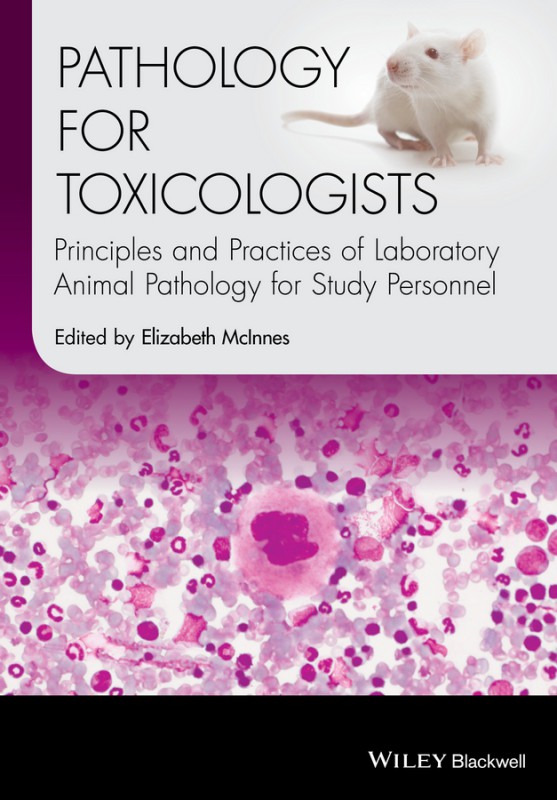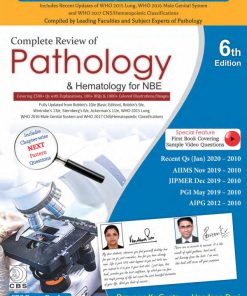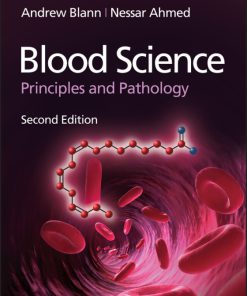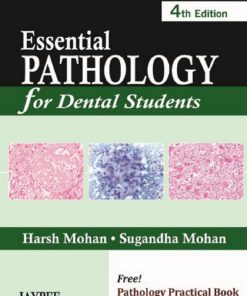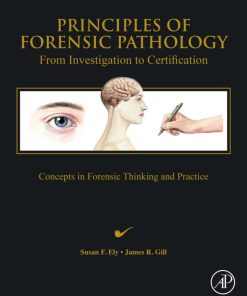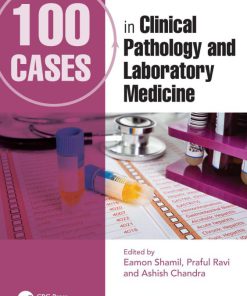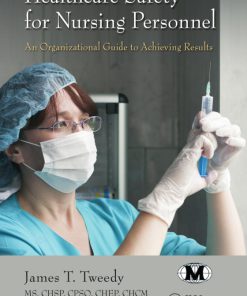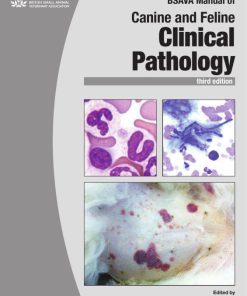Pathology for Toxicologists Principles and Practices of Laboratory Animal Pathology for Study Personnel 1st Edition by Elizabeth McInnes ISBN 1118755405 ‎ 978-1118755402
$50.00 Original price was: $50.00.$25.00Current price is: $25.00.
Authors:Elizabeth McInnes , Series:Pathology [84] , Author sort:McInnes, Elizabeth , Ids:9781118755310 , Languages:Languages:eng , Published:Published:Feb 2017 , Publisher:John Wiley & Sons, Inc.
Pathology for ToxicologistsPrinciples and Practices of Laboratory Animal Pathology for Study Personnel 1st Edition by Elizabeth McInnes – Ebook PDF Instant Download/Delivery. 1118755405 978-1118755402
Full download Pathology for ToxicologistsPrinciples and Practices of Laboratory Animal Pathology for Study Personnel 1st Edition after payment

Product details:
ISBN 10: 1118755405
ISBN 13: 978-1118755402
Author: Elizabeth McInnes
Non-pathologists, such as toxicologists and study personnel, can find it difficult to understand the data they receive from pathologists. Toxicological pathologists write long, detailed and highly technical reports. Study personnel are under daily pressure to decide whether lesions described in pathology reports are treatment-related and thus important to the pharmaceutical company or whether the lesions are background changes and thus of little significance.
Written by experienced toxicological pathologists, Pathology for Toxicologists: Principles and Practices of Laboratory Animal Pathology for Study Personnel serves to bridge the gap in the understanding of pathology data, enabling non-pathologists to more easily comprehend pathology reports, better integrate pathology data into final study reports and ask pathologists relevant questions about the test compound.
This succinct, fully referenced, full colour book is suitable for toxicologists at all stages of their training or career who want to know more about the pathology encountered in laboratory animals used in safety studies. Key features include important chapters on spontaneous and target organ lesions in rats, mice, non-human primates, mini pigs, rabbits and beagle dogs as well as information on general pathology, macroscopic target organ lesions, ancillary pathology techniques, haematology, biochemistry and adversity.
Pathology for Toxicologists: Principles and Practices of Laboratory Animal Pathology for Study Personnel includes:
- Colour diagrams explaining how lesions are caused by either external compounds or spontaneously
- The anatomic variations and background lesions of laboratory animals
- Advice on sampling tissues, necropsy, ancillary pathology techniques and recording data
- A chapter on the haematology and biochemistry of laboratory animals
- Full colour photographs of common macroscopic lesions encountered in laboratory animals
- A comprehensive glossary
Pathology for ToxicologistsPrinciples and Practices of Laboratory Animal Pathology for Study Personnel 1st Table of contents:
Introduction to Toxicology and Laboratory Animal Pathology
- Overview of toxicology and its role in safety assessments
- Principles of laboratory animal pathology
- Ethical considerations in laboratory animal research
- Regulatory guidelines and standards (e.g., GLP, OECD guidelines)
2. Basic Pathology Concepts for Toxicologists
- Basic principles of pathology: cell injury, inflammation, and repair
- Mechanisms of toxicity at the cellular and molecular levels
- Types of toxicological injury: acute vs chronic
3. Laboratory Animals in Toxicology
- Overview of laboratory animals commonly used in toxicology studies (e.g., rodents, rabbits, primates)
- Selection of appropriate animal models for toxicological studies
- Husbandry, care, and ethical handling of laboratory animals
4. Methods in Laboratory Animal Pathology
- Pathological examination techniques (e.g., necropsy, histopathology)
- Tissue collection and preparation for analysis
- Histological staining techniques and microscopy
- Reporting findings in toxicological studies
5. Organ-Specific Pathology in Toxicology
- Toxic effects on major organs: liver, kidney, lung, heart, etc.
- Pathology of gastrointestinal, endocrine, and nervous systems in toxicology
- Reproductive toxicity and teratology
6. Mechanisms of Toxicity
- Toxicodynamics and toxicokinetics
- Dose-response relationships
- Mechanisms of organ-specific toxicity
- Genetic and epigenetic influences on toxicological outcomes
7. Assessment of Acute and Chronic Toxicity
- Acute toxicity testing: short-term exposure studies (e.g., LD50 tests)
- Chronic toxicity testing: long-term exposure and carcinogenicity studies
- Assessment of subchronic toxicity
8. Toxicology and Disease Models
- Animal models for specific toxicological diseases (e.g., cancer, cardiovascular, metabolic diseases)
- Environmental toxicology and the impact on wildlife
- Toxicity associated with pharmaceuticals and chemicals
9. Statistical Analysis and Data Interpretation in Toxicology
- Statistical methods used in toxicological studies
- Interpreting data from pathology results
- Significance testing and the role of controls
10. Case Studies in Toxicology
- Practical examples of toxicology case studies and pathology findings
- The role of pathology in safety assessments for pharmaceuticals and chemicals
- Interpretation of pathological data in the context of human health risk assessments
11. Regulatory and Legal Aspects of Toxicology Studies
- Regulatory frameworks governing laboratory animal studies (e.g., FDA, EPA, ICH)
- Toxicology report writing and documentation
- Good Laboratory Practices (GLP) and compliance issues
12. Emerging Trends and Challenges in Toxicology
- Advances in molecular toxicology
- Non-animal alternatives and in vitro testing methods
People also search for Pathology for ToxicologistsPrinciples and Practices of Laboratory Animal Pathology for Study Personnel 1st:
what do forensic toxicologists test
pathology vs toxicology
famous toxicologists
is forensic pathology hard
toxicologic pathology for non-pathologists
You may also like…
eBook PDF
Principles of Forensic Pathology 1st Edition by James Gill,Susan Ely 9780323986397 0323986390
eBook PDF
Healthcare Safety for Nursing Personnel 1st Edition by James Tweedy 9781040181867 1040181864

